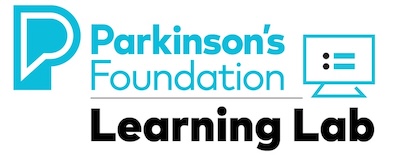Ambiguous Loss
 Ambiguous loss, or loss that is not well defined or respected in our culture, is a common experience for both people with Parkinson's and their loved ones.
Ambiguous loss, or loss that is not well defined or respected in our culture, is a common experience for both people with Parkinson's and their loved ones.
In this course, Positive Psychologist Maria Sirois outlines how to identify and manage the ambiguous losses that so often come with Parkinson’s and how to both find support for yourself and provide support to your loved one with Parkinson’s.
Syllabus | |
Section 1: Ambiguous LossAmbiguous Loss Care To Talk? Ambiguous Loss The Person with Parkinson's Ambiguous Loss: The Care Partner What Can Ambiguous Loss Look Like? Pause and Reflect: Ambiguous Loss in Your Life Section 2: Roles and IdentityChanges in Roles and Identity Maintaining Your Sense of Self Cultural Differences Pause and Reflect: Identities Section 3: Navigating Grief and LossStages of Grief Working through Stages of Grief Take Home Tip - Feel Your Feelings Stages of Grief: Your Experience Pause and Reflect: Your Experience with Loss Section 4: Coping with Ambiguous LossFinding Support Fear of the Future Care To Talk? Difficult Conversations Navigating Difficult Conversations Best Practices for Difficult Conversations Coping with Ambiguous Loss Evaluation | |
Target Audience
This course introduces concepts that can be helpful for those new to the Parkinson’s community as well as those who are seasoned Parkinson’s care partners.
Learning Objectives
Our hope is that care partners who take this course will be able to:
- Understand what ambiguous loss can look like in a person with Parkinson’s and in their care partner.
- Identify ways to work through grief as your loved one’s Parkinson’s progresses.
- Recognize ways to manage shifting roles and maintain important pieces of your identity as your loved one’s Parkinson’s progresses.
Ambiguous Loss Subject Matter Expert:
Maria Sirois, Psy.D
Dr. Maria Sirois is an inspirational speaker, consultant, and licensed psychologist who has worked in the fields of resilience and positive psychology for more than twenty years. As a positive psychologist (Psy.D) she focuses on the capacity of the human spirit particularly when under chronic stress, during significant transitions, and/or feelings the shock of wholesale change. Maria is the author of two books: A Short Course in Happiness After Loss and Every Day Counts.
Expert Care Partners:
Angela Kohls
Angela has been in many caregiving roles throughout her adult life – for her mother with Alzheimer’s, her son on the Autism Spectrum, and her late husband with Parkinson’s.
Maria Mosquera
Maria is a care partner for her husband, who isn’t as fluent in English as she is, requiring her to translate much of what she learns to him along the way. She shares how they navigated diagnosis in the height of the COVID pandemic and the uncertainties that came along with it.

 Facebook
Facebook X
X LinkedIn
LinkedIn Forward
Forward